Francis, the Pope of the excluded, poor and oppressed, always kept Nicaragua in a privileged place in his heart and prayers. He shared with Nicaragua a special veneration for the Immaculate Conception of Mary, whom he always mentioned in his speeches on the Nicaraguan crisis. His closeness to our people he demonstrated especially from the outbreak of the violent repression of 2018 that resulted in more than 350 killed.
From then until shortly before he fell ill in February 2025, Nicaragua, the country with the worst religious persecution in the Western hemisphere and among the largest in the world, was an open wound for his holiness.
According to the report “A Church Persecuted”, between 2018 and last year, the Ortega-Murillo regime banished four bishops and about 150 priests, some of them after keeping them imprisoned. They also expelled the apostolic deputy, nuncio Waldemar Stanisław Sommertag and have kept diplomatic relations with the Vatican frozen, forced religious congregations to leave the country and confiscated their property, religious celebrations like processions are banned, and priests are harassed in their temples.
This unprecedented repression came in response to the courage of the representatives of the Catholic Church, who have expressed the need for a serious and respectful dialogue that contributes to finding a peaceful solution to the crisis facing Nicaragua.
Since 2018 Pope Francis’ closeness to Nicaragua led him to raise his voice, not once but several times. In April 2018 he said, “I express my closeness to this beloved country, and I join the bishops in asking that all violence cease, that useless bloodshed be avoided and that the open issues be resolved peacefully, with a sense of responsibility.”
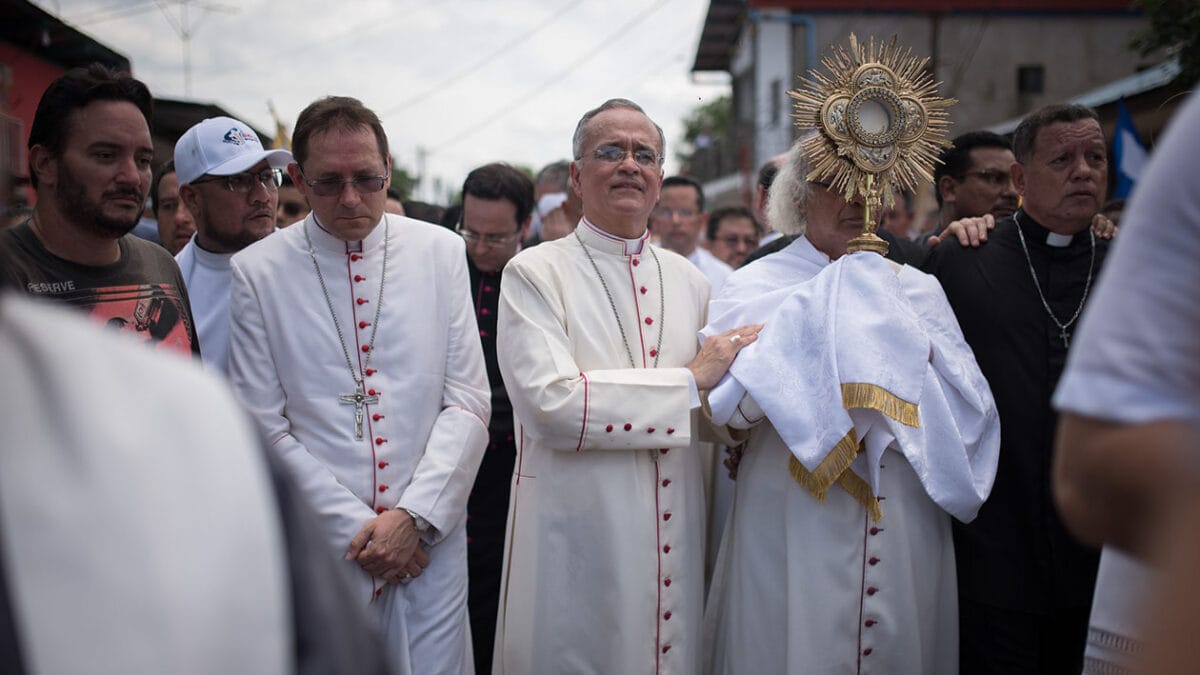
He asked for respect for freedom
He always called on the dictatorship Ortega Murillo to respect the freedom and life of Nicaraguans and prayed for the victims and their families. In August 2020 he expressed: “Nicaraguan people I am close to you, and I pray for you”. He was always willing to dialogue despite not approving everything the dictatorship demanded, particularly when the Vatican advocated for political prisoners and imprisoned religious and at the time he said: “In Nicaragua the news is clear, there is a dialogue, there has been talk with the Government. There is dialogue, but that does not mean that everything the Government does is approved or disapproved”.
In February 2023 he lamented the arbitrary sentence of 26 years in prison imposed on Monsignor Rolando Alvarez and the banishment and depatriation of 222 political prisoners, he prayed for them and for all those suffering in Nicaragua. He asked Our Blessed Mother to open the hearts of those politically responsible for the search for peace that is born of justice, truth, freedom and love, and reiterated that it can only be achieved through the patient exercise of dialogue.
His voice as world leader of the Church and spiritual guide of the Catholics of the planet was loud when he denounced the Ortega-Murillo dictatorship as rude and compared it to the dictatorships of Hitler and other communists of the last century. He even called Ortega mentally unbalanced.
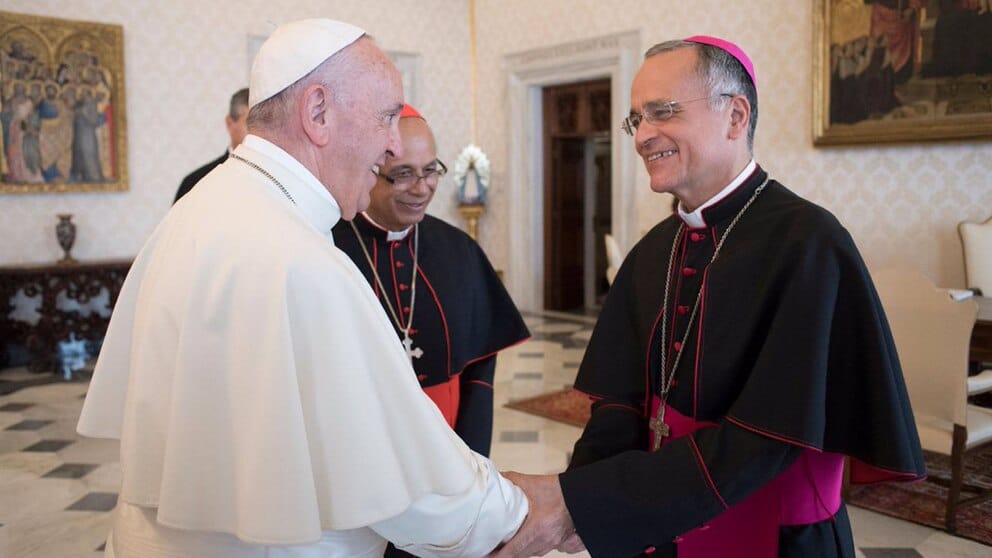
The Pope spoke clearly and loudly
Never has a pope spoken so clearly and loudly to refer to a regime as brutal as that of the Ortega-Murillo family. So much so that he unleashed the fury of the dictators who responded with expletives and accused the pope and the Church of being mobsters.
Pope Francis took to his grave his infinite love for those who suffer in the world and particularly in Nicaragua. In his pastoral letter of December 2024, he conveyed to us his closeness and the assurance that he prayed unceasingly to the Virgin to console and accompany us. “I want to say it strongly, the mother of God does not cease to intercede for you, and we do not cease to ask Jesus to always hold you by her hand…”, he wrote in the letter.
For the Nicaraguan Democratic Concertation (CDN) the testimony of that love for Nicaragua was sealed with his own words, in the testament of the work that he left us as a legacy and the love for our neighbor that he instilled in us. Now that he is gone, that inspires us Nicaraguans of good will to continue fighting for justice, freedom and peace until we achieve the Nicaragua we all long for. Thank you Pope Francis for carrying us in your heart and continue interceding from above for your Marian people.
The loneliness of the Ortega-Murillo dictatorship
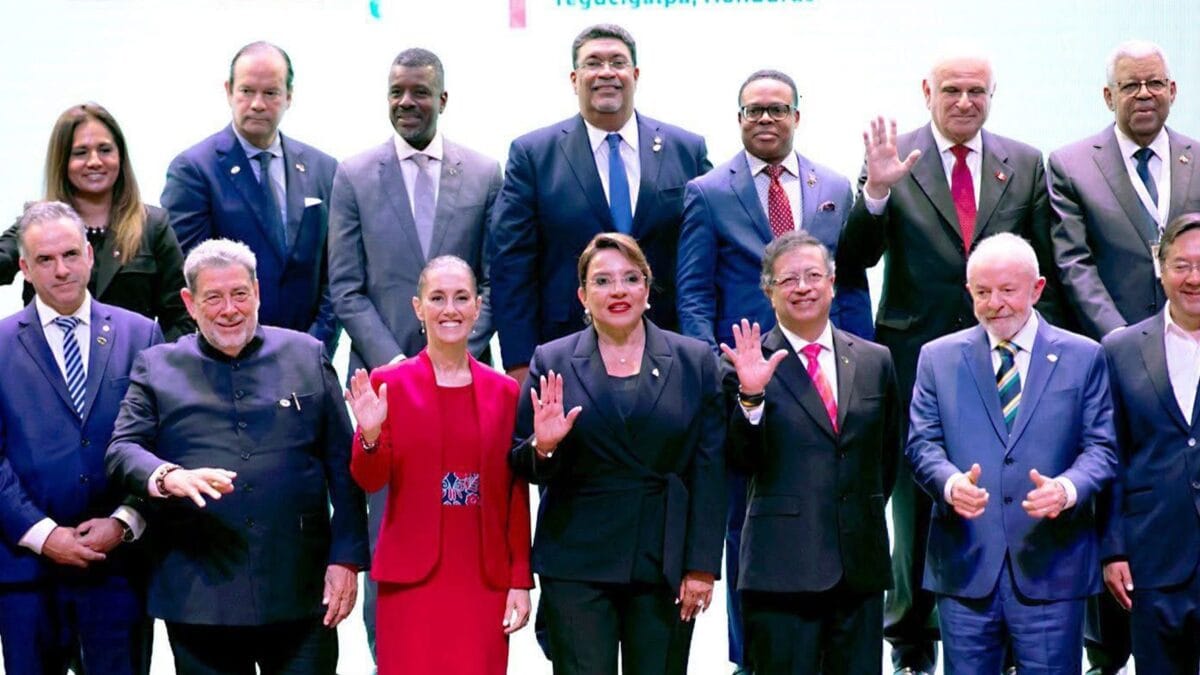
The recent summit of the Community of Latin American and Caribbean States (CELAC), one of the few spaces where Nicaragua still participates, once again evidenced the international isolation of the Ortega Murillo dictatorship, which as a result of its actions, has built a negative image that provokes the repudiation of the international community, including countries that in the past identified themselves with the 1979 Nicaraguan revolution.
It is noteworthy that Nicaragua did not receive support for the positions and proposals it presented at the CELAC Summit, held last April 9 in Honduras, a forum where the dictatorship traditionally had wide acceptance and support, and where neither the United States nor Canada participates.
Some analysts wanted to see the protest of the vetoed candidate for Secretary General of the Central American Integration System (SICA), Foreign Minister Valdrack Jaenstchke, as a simple controversy with the President of Honduras, Xiomara Castro, who acted as President pro tempore of CELAC. However, through an extensive message published on April 9, the Nicaraguan dictators clarified that what happened reflected a substantial difference with the declaration approved at the Summit, and insisted that “There was not, nor is there consensus”.
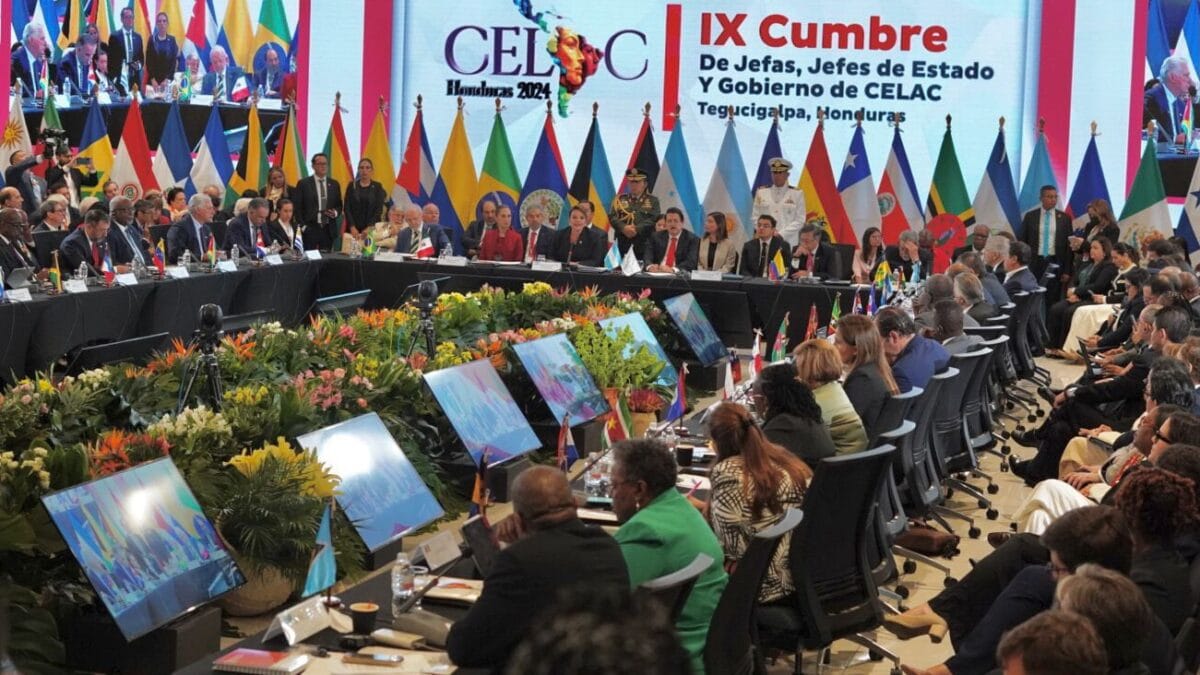
They pretend to give lessons
In their press release, the dictators, Daniel Ortega and Rosario Murillo, pretended to give lessons to the rest of the member countries of this forum. They reminded them of the supposed basic principles built over the years, which support the alleged unity of the Latin American and Caribbean homeland. Furthermore, they let it be known that these principles were ignored during the Summit held in Honduras, especially by not highlighting in the resolution issued, as they wished, the aggressions and coercive measures against Venezuela, Cuba and Nicaragua.
The dictatorship tried to justify the migratory crisis that they themselves provoked by imposing a totalitarian and repressive regime, but which they attribute to the unjust world order and greed of the developed countries.
The Ortega Murillo dictatorship denounced through their message, “the attitude of a few countries that act with the purpose of reducing and diluting the principles, acerbic and rich history of our CELAC”. They assured them that they had identified them for having drawn red lines to their efforts, rejected the attempts to undermine the ideals that they and only they intend to represent and branded them as saboteurs.
The regime seeks to justify themselves by taking extreme positions on the issue of tariffs promoted by U.S. President Donald Trump and hinted at their total alignment with the People’s Republic of China. They invited CELAC to open new bridges of cooperation with that nation, with which they are developing a strategic alliance and which they use as pawns to consolidate their interests in the region
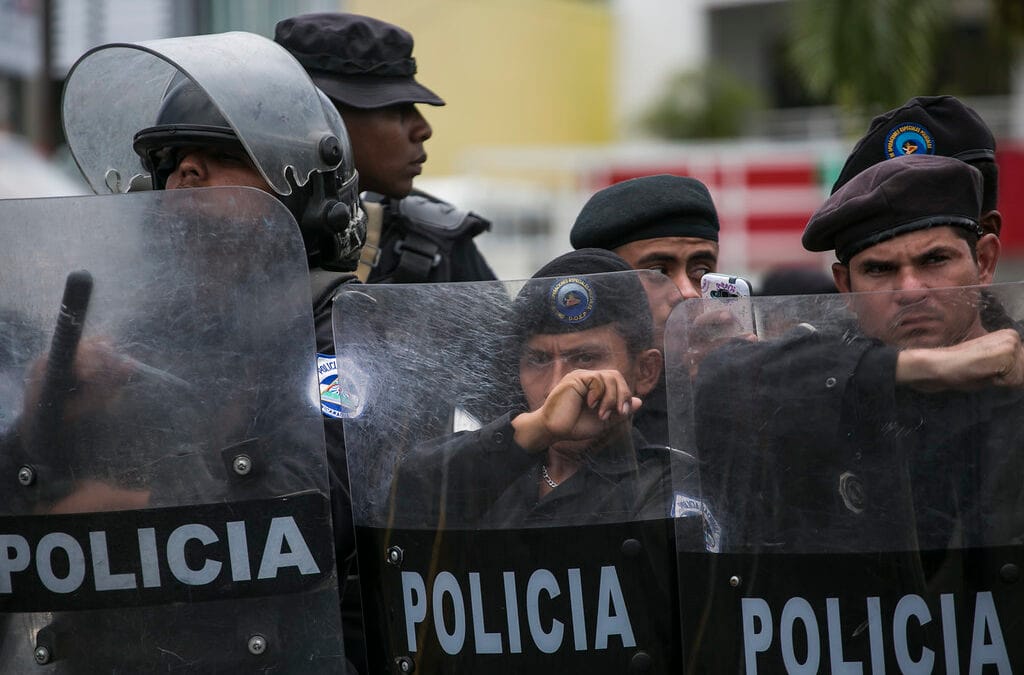
They demonstrate their isolation
For the Nicaraguan Democratic Concertation (CDN), it is obvious that Ortega and Murillo resent the growing isolation they have provoked by turning Nicaragua into an outlaw state, author of serious crimes against international law.
This makes it difficult for self-respecting countries to identify with the positions or even worse with a pretended leadership of the Nicaraguan dictatorship, which no longer enjoys recognition for a progressive ideological position in benefit of the majorities but has become the cruelest dictatorship in the Americas. A dictatorship characterized by persecuting any critical voice, denying human rights to its citizens, approving a constitution that broke with the Latin American tradition of the division of powers and extolling totalitarianism as a form of government conducive to consolidate a family dynasty that abuses power to enrich itself.
The statement issued by the Ortega-Murillo regime in response to the CELAC Summit is symptomatic of their isolation, which is further deepened by their consistent disregard for the special care that diplomatic language requires, in which offensive or confrontational expressions have no place. By including such language, they demonstrate their inability to convey difficult messages while maintaining respect and the possibility of dialogue, as they attempt to shift the blame for their own failures onto others.
